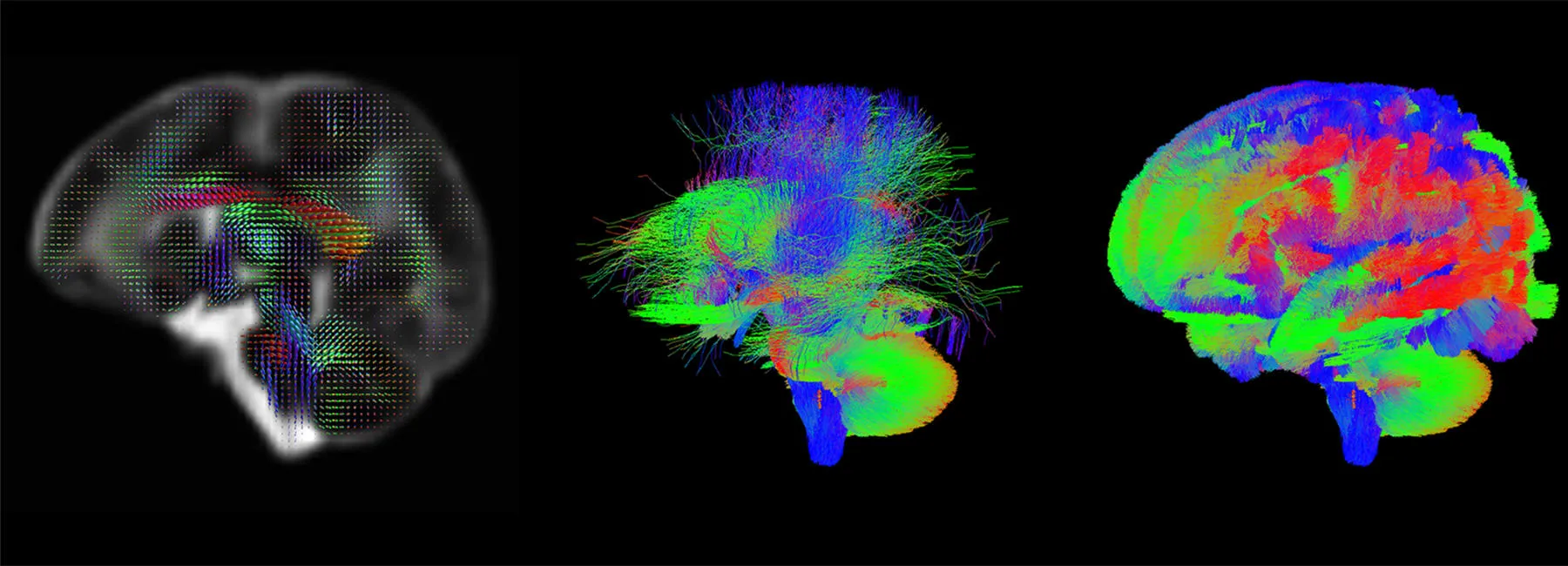The Developing Human Connectome Project is a major advance in understanding human brain development
Professor David Edwards, Director of the Centre for the Developing Brain
05 May 2017
Scientists from King’s have published ground-breaking scans of newborn babies’ brains which researchers from all over the world can download and use to study how the human brain develops.
Scientists from King’s have published ground-breaking scans of newborn babies’ brains which researchers from all over the world can download and use to study how the human brain develops.
The images are part of the Developing Human Connectome Project (dHCP), a collaboration between King’s College London, Imperial College London and the University of Oxford, which will uncover how the brain develops, including the wiring and function of the brain during pregnancy and how this changes after birth. 2

Diffusion MRI of the developing neonatal brain
Left: Multi-shell high angular resolution diffusion data decomposed into a free water component (greyscale background image) and a directionally resolved brain tissue component shown as rendered surfaces.
Middle and right: Visualisation of anatomical connections in the developing brain derived from the brain tissue component.
The project will help scientists to understand how conditions such as autism develop, or how problems in pregnancy affect brain growth.
The team has overcome problems caused by babies’ movement and small size, as well as the difficulties in keeping vulnerable infants safe in the scanner, to develop new MRI techniques that enable images of the brains of foetuses and babies to be captured.
The researchers are sharing their highly detailed images and methods online so that other scientists from around the world can use the data in their own research.
“The Developing Human Connectome Project is a major advance in understanding human brain development – it will provide the first map of how the brain’s connections develop, and how this goes wrong in disease,” said Lead Principal Investigator, Professor David Edwards, Director of the Centre for the Developing Brain at King’s and Consultant Neonatologist at Evelina London.
Find out more about studying Biomedical Engineering and Imaging Science at King’s
